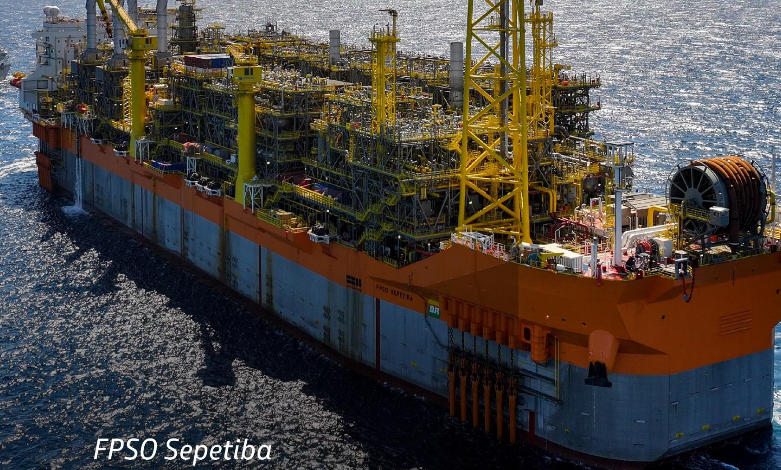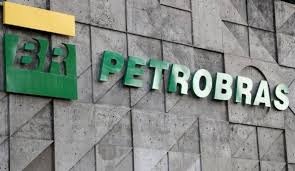
(Petrobras, 8.Feb.2024) — In 2023, Petrobras delivered an excellent upstream operational performance, meeting all production forecasts for the year. Total annual production of oil and natural gas, of 2.782 MMboed, was 3.7% above the production of 2022. Our good results were made possible mainly by the start-up of FPSOs Almirante Barroso, Anna Nery and Anita Garibaldi, as well as the full ramp-up of P-71 and FPSO Guanabara. Another factor that contributed to this result was the start up of new wells in the Campos and Santos Basins. We also achieved an annual record in operated production, with an average of 3.87 MMboed, 6.2% higher than in 2022.
We highlight the start-up of 4 new production systems this year:
• FPSO Anna Nery, on 7 May: the first unit of the Marlim and Voador revitalization project to start production, the FPSO has the capacity to produce up to 70 Kbpd of oil and process 4 MMm3 of natural gas per day and has already achieved average oil production of 44 Kbpd in Dec. 2023.
• FPSO Almirante Barroso, on 31 May: the fifth unit to start production in the Búzios field, with the capacity to produce up to 150 Kbpd of oil and 6 MMm³ of natural gas per day, the unit, currently with 3 producing wells connected, reached its nominal design capacity in Oct. 2023, less than 5 months after first oil, a record in the pre-salt.
• FPSO Anita Garibaldi, on 16 Aug.: the second unit of the Marlim and Voador revitalization project to start production, the FPSO has the capacity to produce up to 80 Kbpd of oil and process 7 MMm3 of natural gas per day and will operate simultaneously in the post and pre-salt of these fields. We currently have 3 producing wells in operation.
• FPSO Sepetiba, on 31 Dec.: This is Mero’s second permanent production system, with the capacity to produce up to 180 Kbpd of oil per day and process up to 12 MMm3 of gas. The FPSO is equipped with innovative technologies that combine increased efficiency and reduced GHG emissions, including CCUS (Carbon Capture, Utilization and Storage), in which CO2-rich gas is reinjected into the reservoir, reducing emissions into the atmosphere. “Our project, which combines CCUS with enhanced oil recovery, is the largest in the world in terms of annual CO2 reinjection capacity, enabling production with lower emissions per barrel. The production start-up of new FPSOs with this technology will help us achieve our commitment to reinject 80 million tons of CO2 by 2025. Currently, 24 platforms operating in the Santos Basin pre-salt are equipped with CCUS-EOR,” said Carlos Travassos, Director of Engineering, Technology and Innovation.
In 2023, we achieved several production records, including the following:
• Total operated production: 3.87 MMboed (previous record of 3.64 MMboed in 2022).
• Petrobras pre-salt production: 2.17 MMboed (previous record of 1.97 MMboed in 2022).
• IUGA (Associated Gas Utilization Index): 97.6% (previous record of 97.3% in 2022).
In 4Q23, average production of oil, NGL and natural gas reached 2.94 MMboed, 2.0% higher than 3Q23, mainly due to the ramp-up of the FPSOs P-71 in the Itapu field, Almirante Barroso in the Buzios field and Anna Nery and Anita Garibaldi in the Marlim and Voador fields. The production start-up of 4 new wells from complementary projects in the Campos and Santos Basins also contributed to 4Q23 results. These effects were partially offset by the natural depletion of mature fields.
Records in 4Q23:
• Total operated production: 4.05 MMboed (previous record of 3.98 MMboed in 3Q23).
• Petrobras pre-salt production: 2.33 MMboed (previous record of 2.25 MMboed in 3Q23), which represents 79% of Petrobras’ total production.
• IUGA (Associated Gas Utilization Index): 98.0% (previous record of 97.6% in 1Q22), contributing significantly to the reduction of emissions and greater carbon efficiency.
As for the downstream segment, the total utilization factor (FUT) of the refining facilities was 92% in 2023, 4 p.p higher than 2022, even with significant scheduled shutdowns throughout the year at the REFAP, RPBC, REDUC and REGAP refineries. Compared to 2022, we increased the share of diesel, gasoline and jet fuel by 2 p.p., reaching 68% of total production, as a result of various optimizations. Total production of oil products was 1,772 Kbpd in 2023, 2% higher than 2022. This growth ensured better allocation of domestic oil and made it possible to supply the market with oil products produced in Brazil, reducing imports.
In 2023, we achieved a new record for pre-salt oils processing, which represented 65% of the feedstock in refining, 3 p.p. above 2022 results. The pre-salt has a combination of high productivity, oil with lower carbon footprint and higher yields of diesel, gasoline and jet fuel.
Sales of S-10 diesel reached a new record, accounting for 62% of total diesel sales, of 463 Kbpd. In line with sales, we reached an annual record for S-10 diesel production in 2023, with 428 Kbpd produced.
Due to investments on the RefTOP Program and optimization actions, in 2023 we achieved the best historical results of the refineries in terms of Energy Intensity (103.7 or 3.8 points below the 2022 result), and Greenhouse Gas Emission Intensity (36.8 kg CO2 eq/CWT, a reduction of 3% compared to 2022), showing the company’s commitment in lowering the carbon intensity of its operations.
In the BioRefining Program, we established a new commercial partnership for the supply of diesel with renewable content, which for the first time will allow transportation companies to fill up their vehicles with this fuel at selected service stations. We have expanded the tests in order to increase the production capacity of this fuel in our refining facilities. In addition to REPAR, which already sells the product, we carried out tests at RPBC, REDUC and REPLAN, which are already able to produce R5 diesel. According to the director of Industrial Processes and Products, William França, this is a milestone in Petrobras’ decarbonization path. “Consistent with the demands of society and a changing world, we are adapting our refineries with co-processing units, based on renewable streams. We are committed to a just energy transition and an ever-increasing sustainability of our products.”
With technology developed by Petrobras, we achieved a historic milestone by processing 100% renewable material for the first time, in partnership with the Riograndense Refinery, generating fully renewable chemical products. It is worth noting that this processing, carried out in a fluid catalytic cracking (FCC) unit, is the first in the world. In addition, we carried out a new test of marine fuel with renewable content, with a percentage reduction in emissions of around 19% when compared to the 100% mineral bunker.
In the Gas and Low Carbon energies segment, we reached the end of 2023 with the best annual historical result for the flaring rate of Natural Gas Processing assets (0.16%). Between 2017 and 2023, there was a 78% reduction in this index, from 0.72% to 0.16%, and from 2022 to 2023 the reduction was 15%. This result shows consistency in the continuous improvement of the index over the period, estimated at 971,000 tons of CO2 eq of emissions that were avoided since 2017.
We signed new natural gas contracts with the Rio de Janeiro gas distribution companies CEG and CEG RIO, following the conclusion of a settlement agreement. The new contracts aim to regulate the supply of natural gas to the Rio de Janeiro market and are valid until December 2034, with a total estimated value of R$51.6 billion.
We signed contracts with Equinor Energy do Brasil Ltda. for the Campos Basin Integrated Natural Gas Flow System (SIE-BC) and for access to the Cabiúnas Gas Treatment Unit (UTGCAB). With the signing of these contracts, Equinor will be able to transport natural gas from the Roncador field, located in the Campos Basin, from January 2024 on. With this contract, we have complied with the provisions of the Gas Law, providing negotiated access to infrastructures and enabling the diversification of agents in all links of the natural gas chain, by sharing the infrastructures of the Santos Basin (SIE BS and SIP), Campos Basin, Catu Pole (BA) and Cacimbas Pole (ES).
We signed a new amendment to the natural gas purchase contract with Yacimientos Petrolíferos Fiscales Bolivianos (YPFB), changing the delivery profile of the total volume of gas contracted by Petrobras. The amendment provides for the maximum volume of 20 million m³ per day to be maintained, with greater flexibility in commitments for deliveries and receipts, and brings greater security and predictability to the supply of gas to the market served by Petrobras.
We signed a new 10-year contract with Excelerate Energy to charter the FSRU Sequoia regasifier, while we resumed operations at the Bahia LNG terminal. The contract allows us to rebuild our fleet with a larger, more efficient vessel.
____________________

